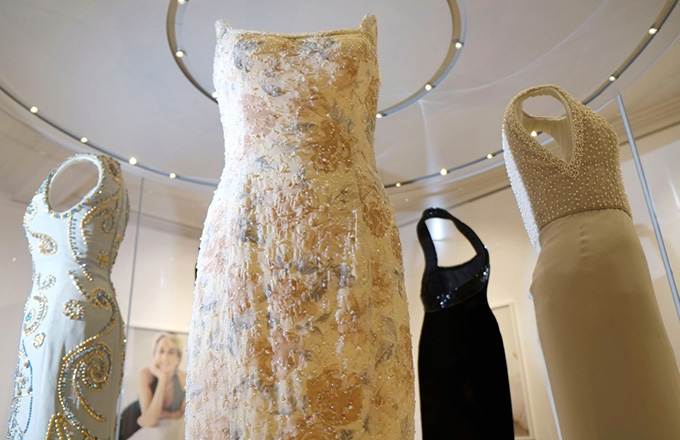CICC chairman: 'Italy and China will equally benefit'
Sergio Bertasi talks potential for China, Italy and eastern Europe
Italian President Sergio Mattarella has began a state visit to China from Feb 21 to 26 at the invitation of Chinese President Xi Jinping. China Daily reporter Yang Cheng interviewed Chairman of the China-Italy Chamber of Commerce Sergio Bertasi on his outlook on bilateral trade, investment and opportunities brought about by country's Belt and Road Initiative.
Q: Could you enlighten us on the performance of Sino-Italian trade ties?
A: Italy and China have a long tradition of cooperation and the trade relations between the two countries are in good shape. China is Italy's fifth commercial partner for trade volume: in fact, 5 percent of Italian exports go to China. In 2016, the trade deficit decreased, with Italian exports rising by 4 percent, while Chinese imports dropped by 3 percent. Major growth was registered in exports of furniture, automotive goods, food, beverages and pharmaceutical products.
Q: The China-Italy Chamber of Commerce, also known as CICC, has taken several steps to boost bilateral trade ties. Could you share some of the key projects you have done in recent years? What new projects will your reputable chamber launch in 2017?
A: Counting almost 600 Italian members, the CICC is committed to supporting the settlement of Italian companies in China and to promote the "Made in Italy" strategy.
Over the years, the chamber has assisted many companies in their operations and has organized business delegations in different sectors. Among key projects are the Business Awards (Golden Panda) and Tourism Awards. Established in 2010, the former is an annual award ceremony for those Italian and Chinese companies whose business strategies achieved remarkable results, thus strengthening the development of business relationships between Italy and China. A total of 59 companies have been awarded in the past eight years.
The Tourism Awards were launched in 2016, following the rise of Chinese tourists traveling to Europe, confident that more and more Chinese tourists will elect Italy as their destination.
Furthermore, worth mentioning is our long-lasting cooperation with Milano Fair for the participation of Chinese buyers in exhibitions in Italy (HOMI, HOST and Tutto Food).
Currently, effort from the CICC is focused on the promotion of its working groups.
The working groups gather representatives of companies operating in the same sector or located in the same geographical area. Their mission is to share information, resources and ideas, to organize activities, and to build expertise within the CICC in order to voice small and medium-sized enterprises' needs to both Chinese and Italian institutions. Ten working groups are already in place: aviation and aerospace, energy and environmental protection, food and beverage, healthcare, industry and manufacturing, machinery, service providers, sport, Suzhou and travel.
One 2017 pet project will be a study, "Made in China 2025: Opportunities for Italian Companies", to be shared and presented to Italian companies both in China and in Italy.
Q: Amid global economic slowdown, what are your expectations for the bilateral trade and investment ties in the future, and what is your comment on China and Italy's roles in addressing the new economic normality?
A: In 2016, Chinese outbound investments reached $170 billion, a year-on-year increase of 44.1 percent. The Belt and Road Initiative could further leverage Chinese interest for investments in Italy, a hub in the ancient Silk Road. According to a study published in January 2017 by Rhodium Group and the Mercator Institute for China Studies, between 2010 and 2016, Italy ranked third of European destinations for Chinese investments abroad (12.6 billion euros, $13.3 billion), behind the UK (23.6 billion euros) and Germany (18.8 billion euros).
Besides, the Chinese government has launched specific programs to tackle the new situation of the economy. I recall Made in China 2025 as a formidable opportunity for cooperation between Italian and Chinese companies. In short, my expectations are that, by working together, Italy and China will equally benefit from the modernization of Chinese industry.
Q: In China, what industries do you expect Italian companies to make the most progress?
A: Italian companies have leading technology and state-of-the-art products in many of the sectors mentioned within Made in China 2025. I trust that those Italian companies will choose to operate within the framework of the Made in China 2025 program and will have a great future here in China.
Q: Could you enlighten our readers on the more cutting-edge and unique advantages that Italian companies possess, which could be complementary to China's current industrial structure?
A: Globally, Italy is one of five countries that boasts a manufacturing surplus of over $100 billion. The top four are China, Germany, South Korea, Japan, and Italian companies are among the more competitive. Italy came within the top three countries globally in terms of trade surplus in specific products for 899 out of 5,117 products in 2014: almost one in five.
Narrowing down to China, I would emphasize that the Italian medical system is the second-best in the world, that Italy is the second European country in terms exports of mechanical machinery, and that Italy possesses cutting-edge technology in energy utilization and conversion of traditional industries, such as steel production factories, for example, into energy-saving systems.
Italy also builds the top cruise ships in the world, and the most beautiful leisure boats, as well as top technologies in food processing and food safety management. In short, Italian companies can play a greater role in these sectors, all of increasing importance to China.
Q: The Chinese government announced the Belt and Road Initiative three years ago and China will host the Belt and Road Initiative International Cooperation Forum Summit in May. What kind of opportunities do you expect to be brought for Italian companies by the Belt and Road?
A: Italy pays attention to this initiative. A large part of Belt and Road Initiative-related projects will be in the Balkans/eastern European area, which is an area well known to Italy and where Italian companies have great ties with local companies. In many countries we have also a large Italian industrial presence. I am confident the initiative will be a natural area of cooperation, facilitated by the utilization of the Adriatic Sea which, with its ports, provides Italy a traditional way of expansion toward the East.
yangcheng@chinadaily.com.cn



















